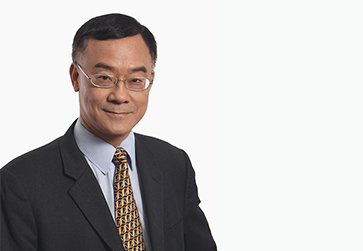Blog
28 February 2018
Leading the way - embedding sustainable agriculture into the Chinese beet sugar industry

A blog from AB Sugar China’s Managing Director, Tony Cheung
At a glance, the make-up of China’s communities is changing fast. The balance of urban to rural is in a transition period as demographics change and the agricultural landscape is adapting to rural migration.
For the beet sugar industry, this has meant rapid changes in land consolidation and the introduction of sustainable agriculture methods and mechanisation.
These changes have not only brought new opportunities for AB Sugar China but have meant the introduction of new ways of working across our wider supply chain as well as with the 11,000 growers that supply our two factories in the north.
Since we established our beet sugar business a decade ago, we have made significant investments in improving the efficiency and sustainability of the industry. The size of our mechanised growing area in the north has considerably increased by 11% in 2010 to over 70% in our 2017/18 campaign. Simultaneously we have consolidated our grower base while boosting yields by over 35% since 2011.
Working in partnership
Our approach to working with growers has developed substantially over recent years and has required a step change in how our teams engage with our grower base. Firstly, to boost knowledge and understanding of the changing industry we set up beet academies to offer training to internal staff and our growers on best practice.
In addition, a team of agronomists support our growers on all aspects of growing sugar beet with areas of specialism including but not limited to; seed variety choices, irrigation, drainage, harvesting and optimising beet storage. We also work with our growers to extend the use of agricultural machinery to improve efficiency in the field and logistics between harvesting and transporting the crop to our factories.
We look at increasing the beet quality by further improving sugar content through improved soil health and reducing use of vital resources such as water. And invest heavily in Research and Development to evolve our agronomy processes and attract the next generation of growers to the crop.
To achieve improvement in all these areas, we have drawn on knowledge from across AB Sugar’s beet activities in Europe and North America which has parallel climate, as well as gathering insight from our grower base to inform decision-making. We use WeChat, an equivalent to WhatsApp, to communicate with our growers, who also share best practice amongst themselves. All of our growers use smart phones and due to their geographic spread around our two factories, this method enables us to deliver information directly to their device in a timely and cost efficient way.
A journey of continuous improvement
Our aim is to ensure there is a sustainable beet supply in north China, which means working closely with our growers and offering tailored support to suit their needs. Creating more from less and developing robust and productive crops year-on-year enables us to build strong rural economies within the communities in which we operate; a key focus for AB Sugar China’s sustainability ambitions. Towards this we offer a limited mechanisation contract service to large growers to showcase best practice and full crop potential of mechanised beet production..
Increasing knowledge, understanding, yield, profitability and crop management are all areas where mechanisation, new technology and more sustainable methods are helping us to advance in our market.
In looking at how far we have come over the past decade, our efforts to progress the beet sugar industry are coming to fruition. Sucrose from sugar beet is now as competitive as sugar cane sucrose in China. As we look to the future, we want to continue to lead the way in the Chinese beet sugar industry; ensuring sugar beet is a sustainable and profitable crop for growers in the north. We will continue to contribute to the improved efficiency of the industry, while decreasing our own footprint and delivering strong returns on investment.















